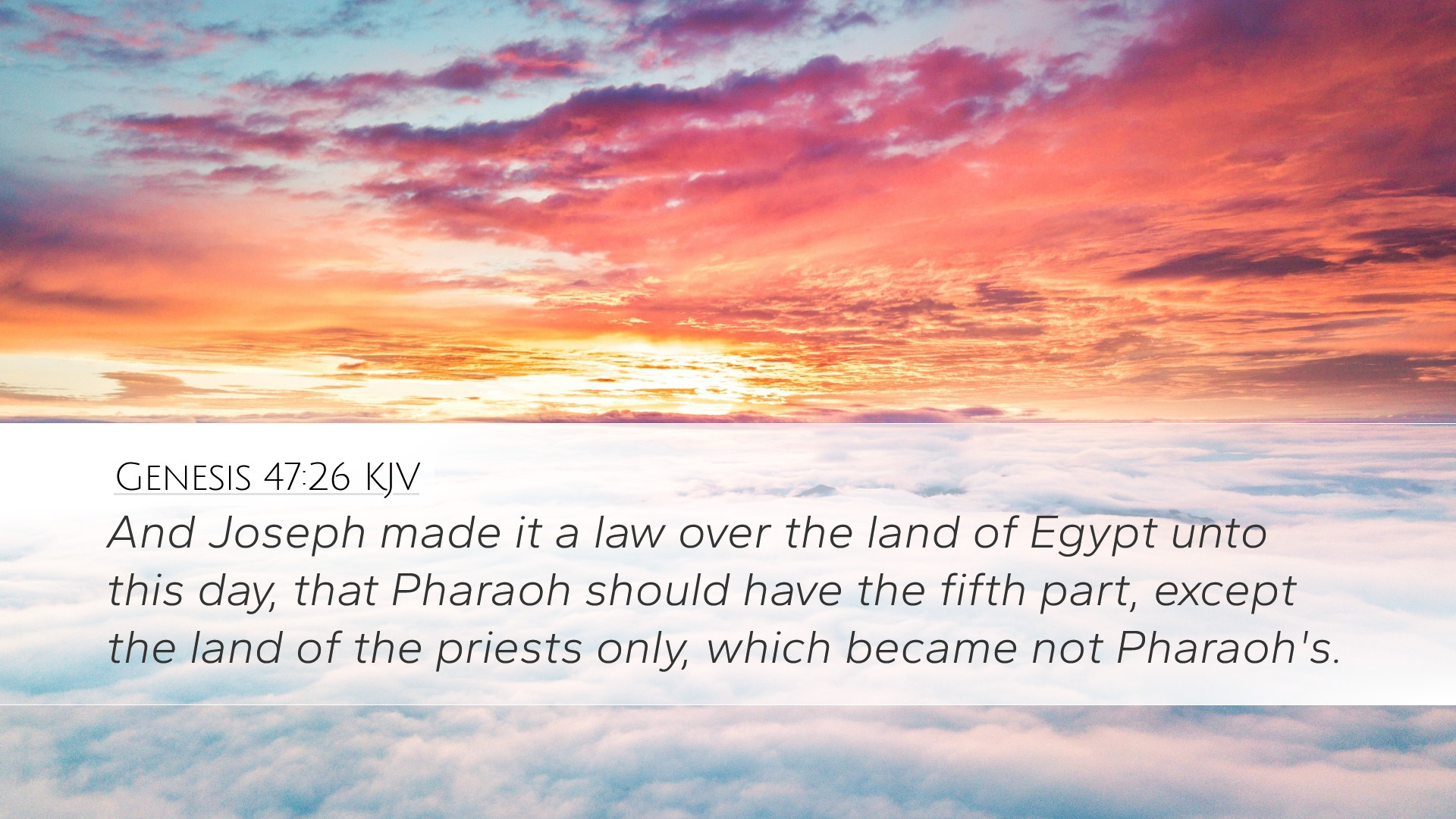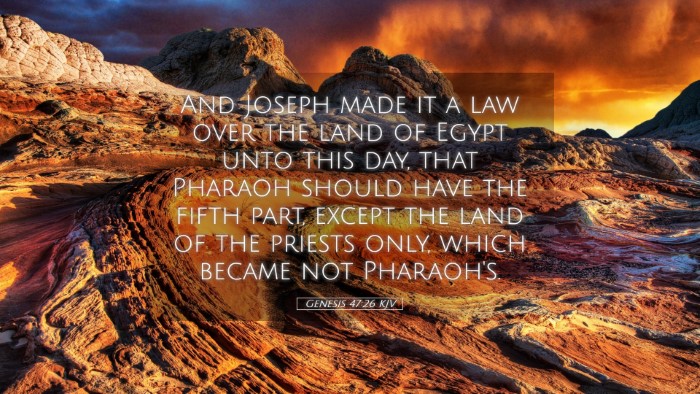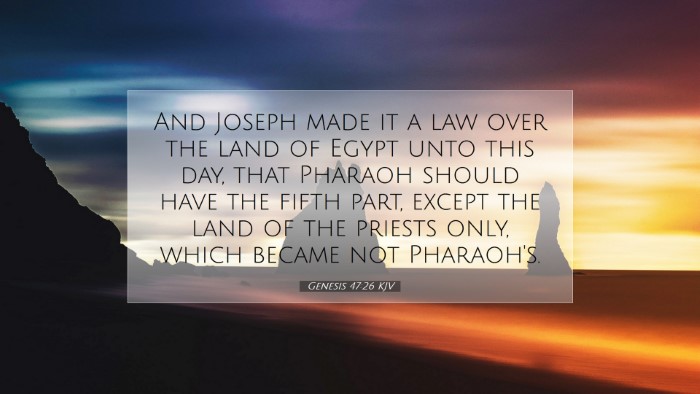Commentary on Genesis 47:26
Genesis 47:26 states: "And Joseph made it a law over the land of Egypt unto this day, that Pharaoh should have the fifth part; except the land of the priests only, which became not Pharaoh's." This verse stands as a critical juncture in the narrative of Joseph's administration during the famine that ravaged Egypt. It encapsulates themes of governance, stewardship, and divine providence.
Contextual Overview
This verse is situated in a broader narrative detailing Joseph's rise to power and the measures he took to manage a catastrophic famine that affected not only Egypt but surrounding nations. Joseph's wisdom and foresight in preparation (during the years of abundance) led to his elevation to second-in-command in Egypt, with the Pharaoh entrusting him with the entire economy of the land.
Analysis of Key Themes
1. Stewardship and Governance
Joseph's administrative decision to impose a tax of one-fifth on the harvest of the land signifies a transition towards a structured economic system under Pharaoh's rule. This action can be viewed through the lens of responsible stewardship. Joseph ensured the survival of the Egyptian people while simultaneously establishing a means for the Pharaoh to gain resources during times of need.
2. Divine Providence
Henry highlights that Joseph's governance was not merely a result of human ingenuity but was guided by divine providence. God had positioned Joseph for such a time as this so that He could sustain His people through severe trial. The law made by Joseph reflects an ordered society under God's sovereignty, providing for those who entrusted themselves to His provision.
3. The Land of the Priests
Another significant aspect of this verse is Joseph’s exemption of the priests' land from this taxation. Clarke notes that this decision reflects the ancient custom of honoring religious figures and recognizing their service to the community. The priests played a vital role in Egyptian cultural and spiritual life, and their lands were vital to maintaining the nation’s religious practices and stability.
Insights from Commentators
Various commentators provide valuable insights into this pivotal moment:
- Matthew Henry: He emphasizes Joseph's acute understanding of governance. By legislating a fifth part for Pharaoh, Joseph created a sustainable economic model that preserved the well-being of the Egyptian populace and ensured the Pharaoh’s continued support, showcasing the importance of wise leadership.
- Albert Barnes: Barnes suggests that the imposition of the fifth part can also be seen as an act of fairness during a time of crisis. He illustrates how this system might have appeared justifiable to the people, considering their desperate situation. It reinforces that a strong leader must make difficult decisions for the common good.
- Adam Clarke: Clarke interprets this action as indicative of a broader principle of taxation for the public welfare. He argues that governments have a role in collecting resources while maintaining a balance that does not oppress the people. His insights highlight the ethical responsibilities of leaders.
Practical Application
For pastors, students, and theologians, this verse is an invitation to reflect on the themes of governance, stewardship, and the moral obligations that leaders hold. It serves as an admonition for contemporary leaders in both religious and secular spheres to seek wisdom and guidance from God in their decisions.
Furthermore, the distinction made for the priests is a reminder of the vital role of spiritual leaders in society. Their preservation demonstrates that even in times of economic distress, spiritual needs cannot be overlooked. It emphasizes the need for churches and communities to support those who minister, ensuring that they can fulfill their calling without being burdened by economic woes.
Conclusion
Genesis 47:26 is a verse rich with meaning and significance. It encapsulates Joseph's legacy as a wise leader and servant of God. It encourages contemporary believers to consider how they can be good stewards of resources, govern with integrity, and honor the spiritual leaders in their communities. By examining Joseph's actions and the context in which they occurred, we are equipped to face our societal challenges with faithfulness and wisdom.


